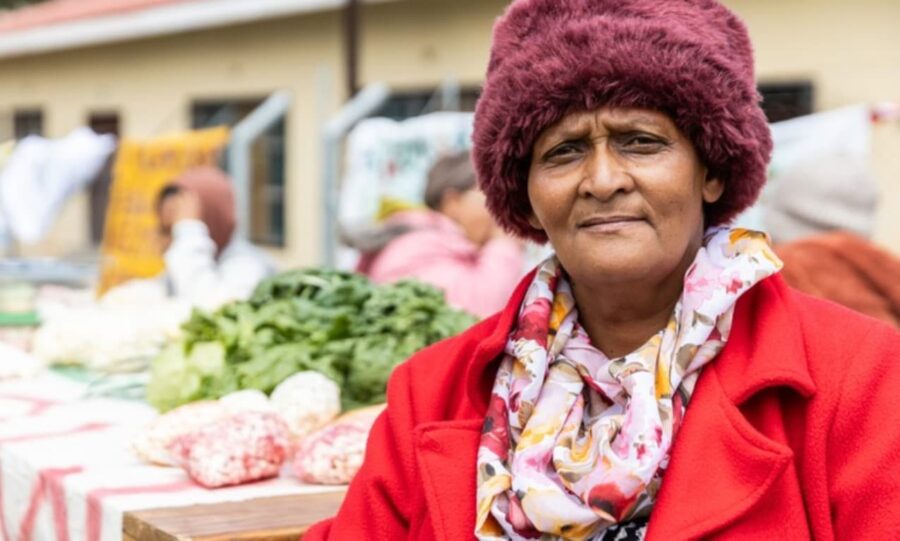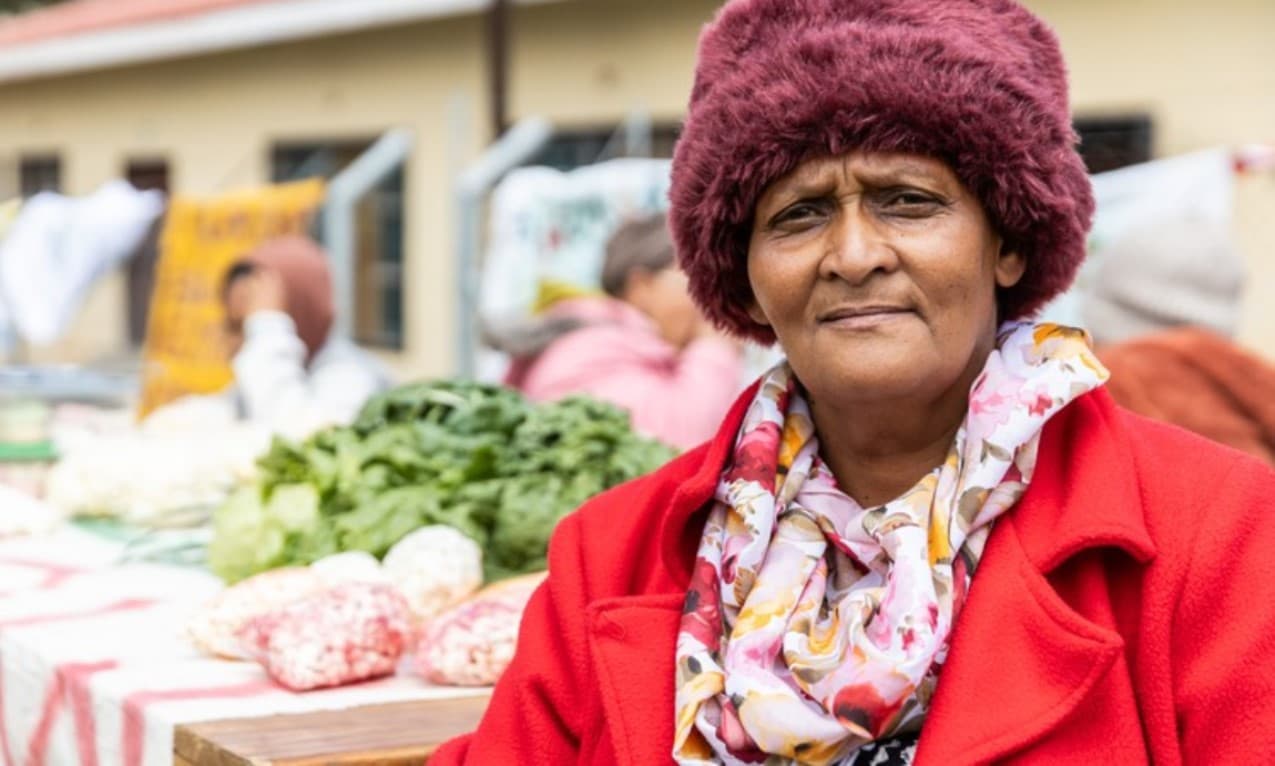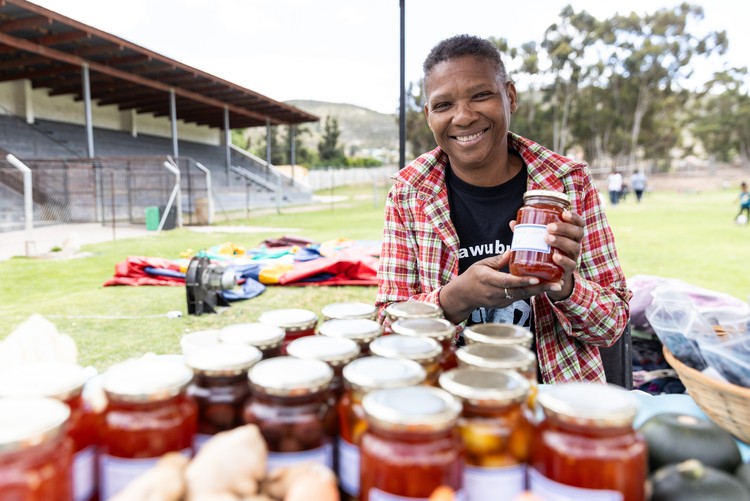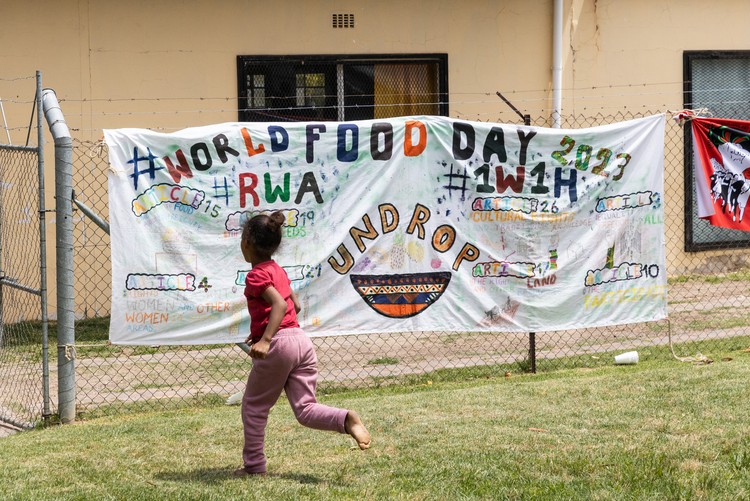
Rural women shed light on food insecurity
“Small household gardens are not enough for women to be able to escape food insecurity” says activist

“It’s very important to be able to put your own food on the table … With food prices rising, it is a profit for me to be able to plant and eat from my own garden,” says Priscilla Claassen, a gardener from Zoar, a village in the Western Cape.
- On Saturday rural residents, small-scale farmers, and farm workers came together to commemorate World Food Day & International Day of Rural Women, hosted by the Rural Women’s Assembly.
- Organisations spoke about the need for rural-living women to have access to land with water to grow their own food.
- Small-scale farmers said that they been devastated by the September floods in the region.
Claassen sold spinach from her garden at an event in Montagu on 28 October, hosted by the Rural Women’s Assembly to mark International Day of Rural Women and World Food Day.
Farm workers and small-scale farmers from rural areas were brought together to raise awareness of their struggle to access food, land, and water as part of the organisation’s One Woman-One Hectare campaign. People came from areas such as Robertson, Ashton, Suurbraak, Zoar, and Swellendam. Other organisations at the event included Trust for Community Outreach and Education (TCOE), Africa Unite, Commercial, Stevedoring, Agricultural and Allied Workers Union (CSAAWU), and others.
Despite growing her own vegetables, Claassen said the space she uses is too small to expand and start a small business. She grows carrots, beetroot, spinach, and potatoes in her backyard.
Other people were also selling fresh produce, homemade products like pickled vegetables and handcrafted items.
Denia Jansen, a McGregor resident, said that it is difficult for rural women in the current economy. “Many women are unemployed and the only income they have is a grant. If you have your own piece of land, you can plant your own food and look after yourself, your neighbours, and the community. You can also make additional income,” said Jansen.

She said the One Woman-One Hectare campaign aimed to highlight that many women “want to do it themselves and to better their lives on their own by having land”.
Lungisa Huna, co-director at the TCOE, said that food security is closely related to access to land. “Without land you cannot produce. Small household gardens are not enough for women to be able to escape the poverty of food insecurity,” said Huna.
ALSO READ: Rising Costs, Diminishing Plates: Fighting the Food Crisis
The recent floods in the Western Cape at the end of September also devastated the region. Small-scale farmers had lost a lot of their livestock and produce. Claassen told GroundUp that all her seedlings washed away in the floods.
Fabian Small, a small-scale farmer from McGregor, said that many small farmers lost their livelihoods when their livestock and their shelters washed away in the heavy rains. GroundUp also previously reported on a nearby small-scale farmer in Genadendal whose livestock drowned when their farm flooded.
Jansen said that the yearly event brought together women from all over the region and allowed them to “converse and make connections” and also present their produce and products to sell. “It’s not often that we can do events like this one,” she said.

